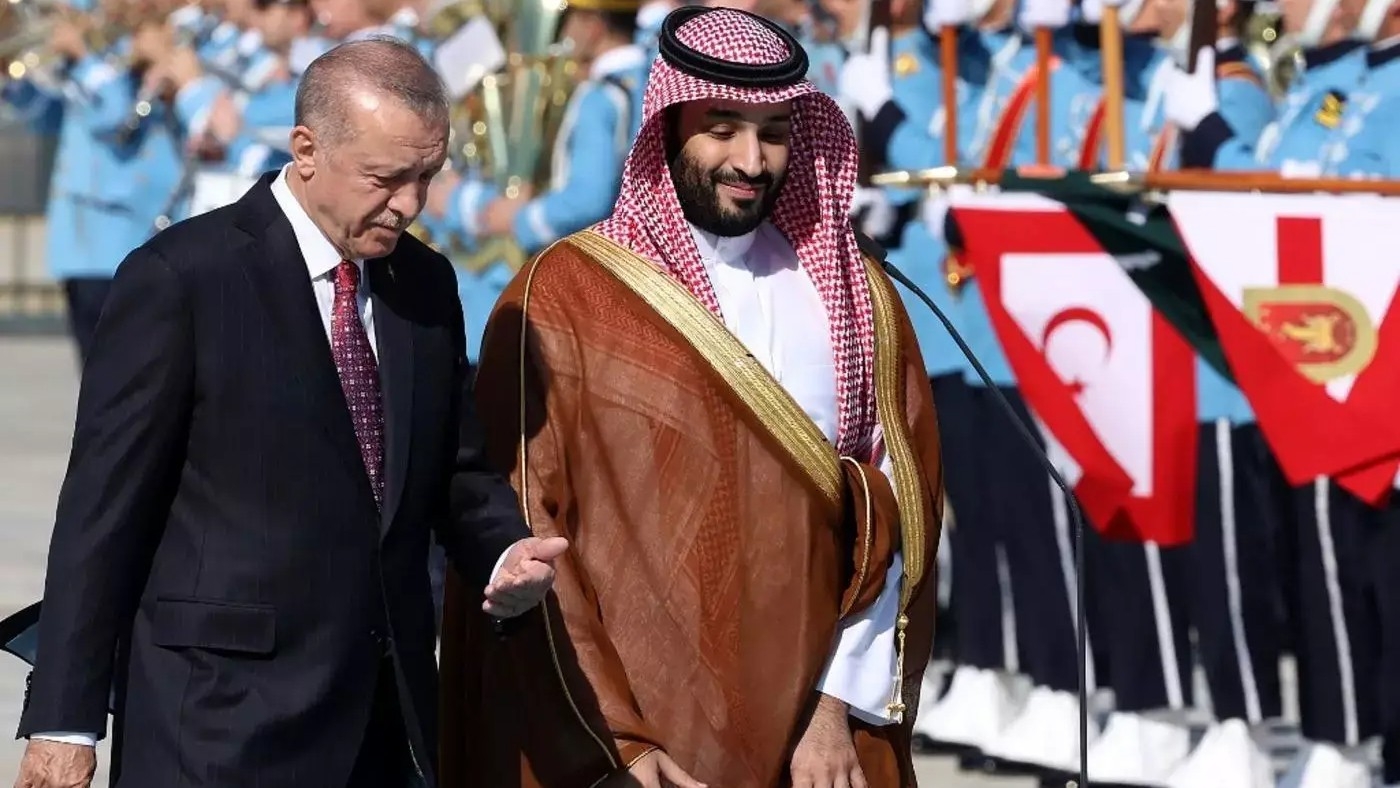The United States has long viewed its relationship with Saudi Arabia as its most influential partnership in the Middle East. But Turkey is rapidly becoming a regional hegemon, while maintaining close ties to Europe and the U.S. through its NATO membership. With Turkey’s recent shift towards the West, as well as efforts to rebuild relationships with Middle East partners, its strategic importance is growing. If America wants to maintain its political and military power in the region, it needs to take advantage of this rise and forge closer relations with Turkey.
From the U.S. perspective, President Recep Tayyip Erdoğan has been a divisive leader, making formal relations challenging to maintain. His authoritarian and often ruthless leadership runs afoul of Western democratic principles. His unpredictable nature makes policies difficult to anticipate, as he has strained and regained ties with several nations. He maintains a close friendship with Vladimir Putin, yet opposes the war in Ukraine and the Russian-backed Assad regime in Syria. Turkish forces contributed to the war against the Islamic State in Syria, but some of its military incursions there have been a front to fight against the U.S.-backed Kurds, whom Erdoğan considers a threat to his country’s security.
Recently, Erdoğan has taken stances much more aligned with the West. He dropped his opposition to Finland and Sweden joining NATO and even supported a future bid for Ukraine. His easing towards Europe can be attributed to several factors: Turkey’s economic struggles; Wagner Group leader Yevgeny Prigozhin’s uprising, which weakened Putin’s stature (particularly in the eyes of Erdoğan, who survived his own coup attempt in 2016); and Erdoğan being able to take less of a hard line following his reelection in May. Turkey’s relations with China have also soured, largely due to China’s treatment of Uighurs.
Meanwhile, Turkey has also spent much of the last year rebuilding its own relationships in the Middle East. After years of strained relations, Israel and Turkey recently made several reconciliatory steps, formally restoring relations last August with an ambassador to Turkey being named for the first time in five years. Turkey has also restored ties with Saudi Arabia — degraded since the 2018 murder of Jamal Khashoggi in Istanbul — and the United Arab Emirates (UAE), the two most economically influential countries in the region. Following a year of increasing trade between Turkey and Saudi Arabia, they returned to cooperation, culminating in a meeting of senior defense officials last November. Meanwhile, the UAE and Turkey’s foreign ministers also met in November to strengthen the bilateral partnership between the two nations.
Now it is America’s turn to bolster a stronger relationship with Turkey. The work already started at the NATO Summit in Vilnius, Lithuania, with Erdoğan calling President Biden a “dear friend” and Biden saying he looks forward to working together for the next five years. The successful push to add Sweden to NATO was a large step forward, with Biden promising shortly after to push through a sale of F-16s that had been on the negotiating table since 2021.
In order to strengthen this relationship, the United States must take some unpleasant steps that show how committed it is to the partnership. The F-16 deal still faces some opposition in Congress, which must be overcome. If Turkey is willing to stop its S-400 air defense program (which has never gotten online in the first place), perhaps Congress could be swayed to allow them to rejoin the F-35 program. The U.S. could also pledge to control Kurdish forces and prevent them from crossing the border from Syria. Financially, the U.S. could also remove tariffs that have been in place on Turkish materials, in particular steel and aluminum.
These asks are substantial, but the returns will be worth it for the ability to better enact U.S. policies in the Middle East. Turkey is well positioned to partner with America for added regional security and to negotiate a peace process in Israel. Turkey started limiting Hamas from organizing within its own borders, though it has not yet formally ousted anyone. Turkey’s partnership with Saudi Arabia and the UAE may lead to closer ties with Iran following the reopening of formal relations with those countries earlier this year. If the U.S. seeks to return to or develop a new nuclear deal, Turkey could be a reasonable mediator between the two sides. Even in the absence of a deal, a more powerful Turkey (especially one partnered with Saudi Arabia) could provide more leverage to force Iran to limit its nuclear growth. With fears of an ISIS resurgence, Turkish forces would be critical in countering a potential rise of the caliphate, while Incirlik Air Base would be invaluable for air strikes and logistics for coalition forces going into northeastern Syria.
There are certainly a lot of roadblocks ahead to a smooth partnership between the U.S. and Turkey. While supporting the fight against ISIS, Erdoğan would need to limit Turkish forces from attacking the Kurdish Syrian Democratic Forces that do not pose an existential threat to the border. While the F-16 deal is back on the table, Turkish reentry into the Joint Strike Fighter program seems unlikely after it was kicked out in 2019 following its purchase of Russian S-400 air defense systems. The U.S. also will face internal opposition for openly supporting Erdogan given his record of authoritarian rule.
It is not an easy ask for the United States to partner with President Erdoğan and Turkey. But given its growth as a leader in the Middle East and a refocused relationship with Europe, a partnership with Turkey is necessary for America to maintain its level of influence in the region.
By: Lieutenant Commander Stewart Latwin – the Navy Federal Executive Fellow at the Center for a New American Security. The opinions expressed here are those of the author and do not reflect those of the U.S. Navy or the Department of Defense.
Source: Hill



